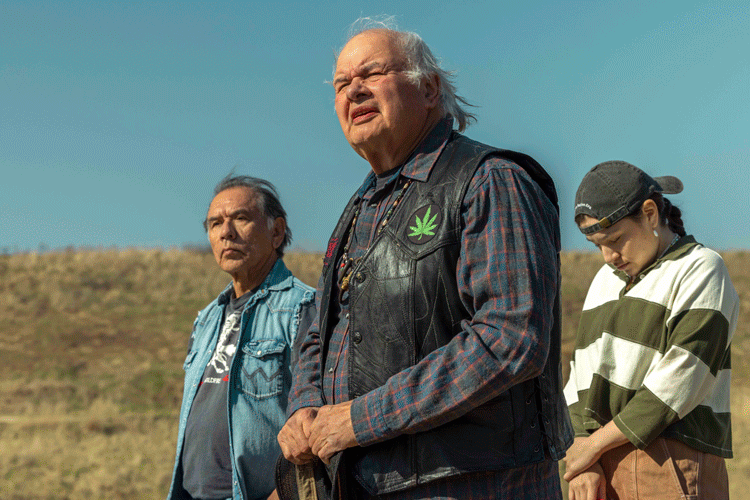‘WAY-OUT’: A STYLE CBS CAN’T REFUSE
- Share via
Roderick Taylor, creator of “Otherworld,” recalls with a chuckle his first lunchtime meeting with Harvey Shephard. The CBS executive couldn’t help staring at the mirror behind Taylor--which was reflecting the latter’s curly blond mane.
When Shephard looked directly at Taylor he saw close-cropped, jet-black hair.
“Well, who would they want to produce a show about another dimension except someone from that dimension?” Taylor said the other day, sporting the same two-tone new-wave hairdo.
He is as unlikely a newcomer to the starched-shirt corporate world of CBS as his show is to the network’s prime-time schedule.
A former Stegner Fellow in poetry at Stanford University, Taylor was under contract to Universal to write a made-for-TV movie and a feature film. He also had a deal as a rock ‘n’ roll performer with MCA Records, which falls under the same corporate umbrella as Universal.
But while reading a physics book titled “Other Worlds,” which posits the theory of parallel universes, Taylor dreamed up the following television concept: What if a normal family accidentally got stuck in a parallel universe that was similar to Earth yet quite different?
“This was a way of having continuing characters and still having the anthological advantage of going into a whole different environment and dealing with a whole different big moral issue every week,” Taylor said.
“It’s like ‘Star Trek’: They could go from planet to planet; we can go from province to province. Anything they can do we can do.”
When Robert Harris, president of Universal TV, said in passing that “I’d love to do a science-fiction family show, but I don’t want to do anything in space,” Taylor pitched “Otherworld.” Harris liked the idea and, to bring the show to CBS, matched him up with DeGuere, who “was hot at CBS” at the time, Taylor said.
Tailoring “Otherworld” to meet the needs of “the most conservative of the three networks” has not been without its problems, Taylor said. He sees the show as “an incredible opportunity to explore a science-fiction kind of fantasy genre, and they (CBS) are more into the family action-adventure. And I don’t see the reason to literally transport a California family into another dimension just to have action-adventure.”
The network at one point rejected 12 of 13 episode concepts that Taylor submitted, mostly those of a darker and more adult-oriented nature.
Some of the shows that got by deal with weighty themes by TV series standards--adultery, at a Club Med-style resort province; loss of identity in a technologically advanced province. But they are balanced out by lighter episodes, such as one where the two teen-age Sterlings introduce “Otherworld” kids to rock ‘n’ roll by performing old Beatles and Rolling Stones tunes.
“The negative side is they hold us back from wanting to go as far as we could,” Taylor said. “The positive side is they’re putting on a science-fiction show, and they have stuck their necks out in terms of getting this on the air. And to their credit, I think they’ve been cautiously tolerant of giving somebody a chance who is not from the TV mold.”
More to Read
The complete guide to home viewing
Get Screen Gab for everything about the TV shows and streaming movies everyone’s talking about.
You may occasionally receive promotional content from the Los Angeles Times.






